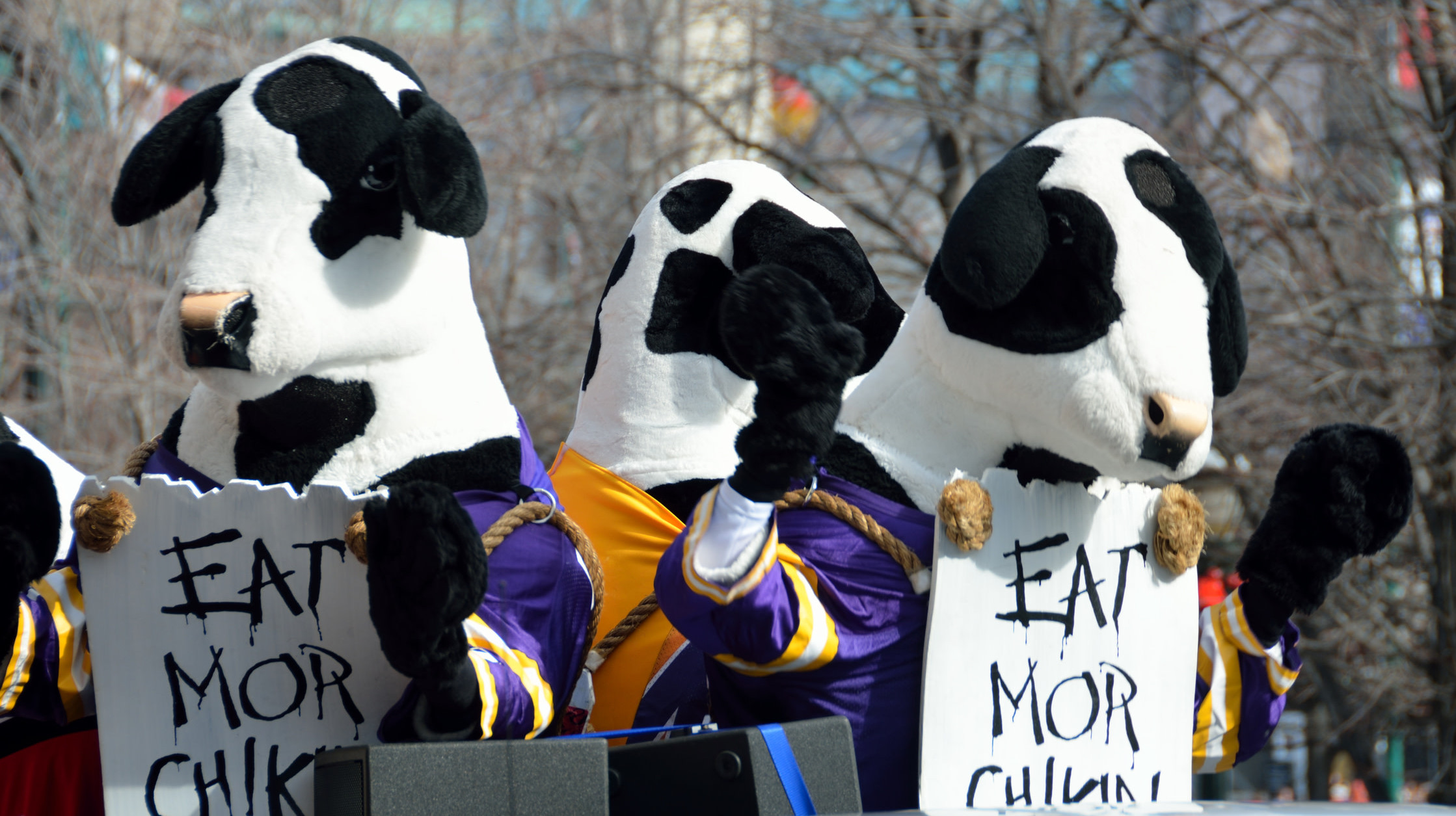The Chick-Fil-A Culture Wars Have Escalated
Until roughly six months ago, the choice of whether or not to eat at Chick-fil-A was a largely personal one. In a 2012 interview with a Baptist website, Chick-fil-A CEO Dan Cathy revealed he opposes gay marriage and supports "the biblical definition of the family unit," and Chick-fil-A's foundation has since donated to organization that oppose gay marriage. Though individual Chick-fil-As are independently franchised, the restaurants became synonymous with conservative social values and anti-LGBTQ attitudes. Some people chose not to eat there—or to go out of their way to eat there—as a result.
A recent series of events, though, has turned Chick-fil-A into a proxy in America's culture wars, with increasing public demonstrations from both its supporters and critics. What was once a private question of eating or not eating at a certain restaurant has become a full-on public spectacle in which city councils, airports, and even presidential candidates are being asked to take a side.
The latest escalation took place in San Antonio yesterday, where Christian advocacy group Texas Values held a demonstration called "Save Chick-fil-A Day." The San Antonio Express News reports the rally specifically criticized San Antonio City Council for not allowing a Chick-fil-A location to open in its airport, a decision that will be reviewed today. The demonstrators framed the Chick-fil-A-in-airports question as one of religious liberty and respect for Christian values.
"In Texas, we're saying Chick-fil-A will not stand alone, religious freedom will be protected, your ability to practice your faith will be protected and tyranny will be turned back," Rev. Dave Welch, leader of the U.S. Pastor Council, said at the rally.
In an another public venue, Chick-fil-A critics last week commandeered a Chick-fil-A-sponsored zamboni at a professional hockey game, unfurling signs that read "Chick-fil-A is anti-gay." The hockey team swiftly defended its partnership with Chick-fil-A and condemned the protesters' actions, adding it will no longer allow signs aboard the zamboni.
There is no neutral stance on Chick-fil-A any longer. It's become a potent symbol in fierce debates surrounding religious liberty and corporate responsibility, and those arguments aren't likely to abate any time soon. A few Takeout commenters have said our site shouldn't cover the chain at all. So the question becomes: Where does this lead? What does a resolution to the Chick-fil-A wars look like? Six months ago, I might have said the issue would largely pass from public consciousness: Some people will eat there, some people won't. But the public now demands a sort of reckoning, a final decision on where we as a country stand on Chick-fil-A as an idea, not just a chicken restaurant.
Like monuments of the 10 Commandments on government building grounds, Chick-fil-A stands for a greater American divide. Its omnipresence in the news has made the decisions of customers no longer a personal one about whether or not they like its chicken sandwiches. It's made airports' choices to renew or not renew a contract political statements. It's made politicians choose sides, congeniality be damned.
I can't say where the Chick-fil-A culture war ends, but I don't anticipate we've reached its apex.
